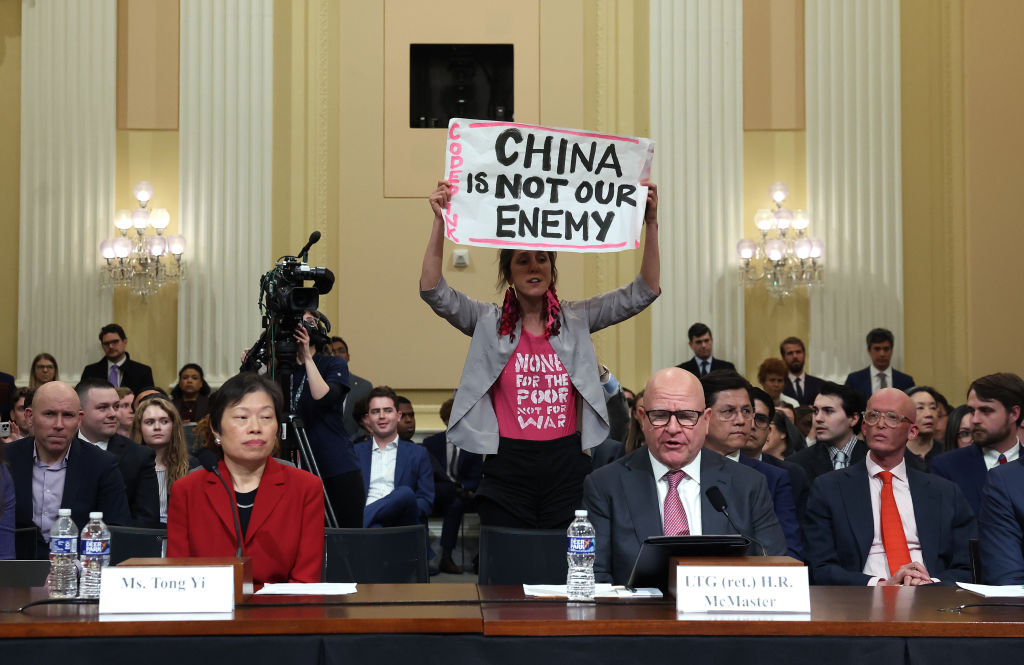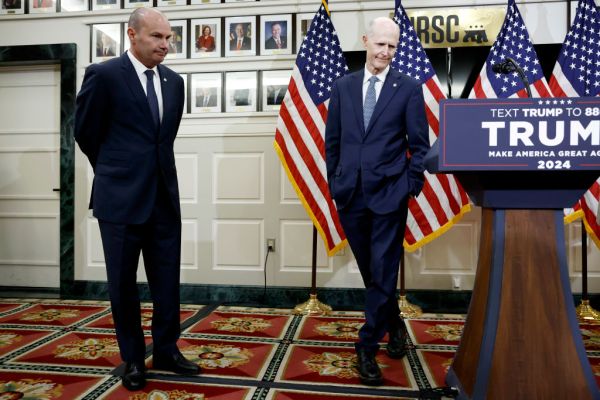Watching the first hearing of the House’s new select committee on competition with the Chinese Communist Party was like drinking from a firehose.
For three hours on Tuesday night, lawmakers and witnesses discussed human rights abuses, genocide in Xinjiang, forced labor legislation, Taiwan, TikTok, spy balloons, trade deficits, COVID-19, intellectual property theft, agricultural land purchases, anti-Asian discrimination, U.S. business investments in China, currency manipulation, America’s military posture in the Indo-Pacific, rare earth minerals, climate change, electric vehicles, fentanyl, global Chinese influence operations, trade agreements in southeast Asia, and the CCP’s vast regime of internet censorship and surveillance.
And that’s far from an exhaustive list.
The committee’s first hearing was designed to raise awareness about the issues within the panel’s purview and to set the stage for its future work. But the hearing’s vast scope makes clear how much work this committee has ahead of it—and raises questions about just how effective the new panel can be.
“We must act with a sense of urgency,” said Rep. Mike Gallagher, the Wisconsin Republican who chairs the panel. “I believe our policy over the next 10 years will set the stage for the next hundred.”
Committee members broadly agreed Tuesday about threats posed by the Chinese government. The panel’s leaders made a point to highlight the CCP’s long record of human rights abuses, playing a video featuring Chinese dissidents at the start of the hearing. Gallagher and Rep. Raja Krishnamoorthi, the top Democrat on the committee, also condemned anti-Asian discrimination and clarified the difference they want to continually make between the Chinese Communist Party and the Chinese people.
“We have no quarrel with the Chinese people or people of Chinese origin,” Krishnamoorthi said. “We should never engage in anti-Chinese or anti-Asian stereotyping or prejudice.”
During the hearing, former national security adviser H.R. McMaster told lawmakers he believes China is a greater threat than the Soviet Union was during the Cold War.
He also urged stronger ties with countries in the Indo-Pacific, saying China’s aggression is making it clear that those foreign policy choices aren’t “a choice between Washington and Beijing. It’s a choice between sovereignty and servitude.”
The committee hasn’t scheduled its next hearing yet, although Gallagher has expressed interest in future hearings about Taiwan and weapons supplies.
Eric Sayers, an Asia-Pacific defense and China policy expert at the American Enterprise Institute, said the new panel can achieve two important outcomes. First, it can “explore and build knowledge around the pillars of the vast competition we face.”
Second, it can push for legislative action. The new select committee doesn’t actually have the power to send bills to the House floor. It will instead issue reports and recommendations. That means its work may be more limited than Gallagher and Krishnamoorthi would prefer: They’ll have to coordinate closely with the other House committees and congressional leaders to advance their priorities.
And while there’s consensus about the big picture, lawmakers don’t seem ready to take some of the actions witnesses urged on Tuesday. Scott Paul, president of the American Alliance for Manufacturing, repeatedly argued for revoking China’s permanent normal trade relations status, which would mean higher tariffs for Chinese products. He also urged changes in the threshold that exempts certain international shipments from duties and extra processing—a threshold getting increasing scrutiny from lawmakers.
Those ideas face pushback from the business community, and members may be reluctant to do anything that could hike prices for U.S. consumers.
Even as the hearing’s tone was overwhelmingly bipartisan, some tensions still lurked beneath the surface: Rep. Andy Kim, a New Jersey Democrat, argued that one of the best ways for the United States to compete with China is for lawmakers to push back on authoritarianism at home—his words serving as a grim reminder of former President Donald Trump’s attempt to overturn the 2020 presidential election.
The proceedings were interrupted early on by two protesters from the left-wing group Code Pink, who argued China “is not our enemy” and that the new House committee is a saber-rattling exercise. Paul pointed out afterward that the protesters demonstrated one of the many differences between the United States and China.
In China, he said, their protest wouldn’t have been broadcast at all and their voices would be silenced. “Perhaps permanently.”









Please note that we at The Dispatch hold ourselves, our work, and our commenters to a higher standard than other places on the internet. We welcome comments that foster genuine debate or discussion—including comments critical of us or our work—but responses that include ad hominem attacks on fellow Dispatch members or are intended to stoke fear and anger may be moderated.